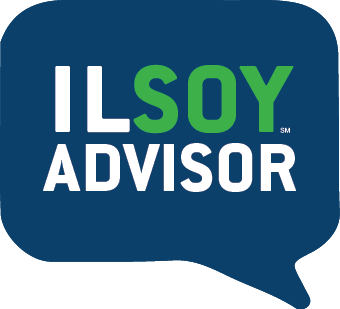ILSOYADVISOR POST
Trust or LLC: Which is Better? (Wrong Question!)
This article was originally published in Illinois Prairie Farmer.
Estate Plan Edge: Different legal ways of holding assets can get terribly confusing. Make sure you get the full story before you create something.
The Farm Progress Show is always an enjoyable opportunity to visit with farmers about their goals and the planning they have done to accomplish those goals. I enjoy brainstorming with attendees who, I trust, leave with greater understanding of their options.
One question that did not seem to come up this year was: “Which is better, a corporation or a limited liability company?” Word seems to have gotten out that anything you can do with a corporation can be accomplished more effectively with an LLC. The LLC provides better lawsuit protection and is a more flexible form of business organization. Where a corporation is either taxed as a subchapter S or as a C corporation, you can elect to have your LLC taxed in other ways. For instance, the LLC can be taxed as an S corporation or a C corporation, or as a sole proprietorship or partnership.
But a trust?
But a question that does continue to arise is this: “Which is better, a trust or a limited liability company?” This question is like asking, “Which is better, a tractor or a planter?” A trust and an LLC are simply different creatures with different purposes.
The LLC is a business entity. You can create the entity, which is almost like another person. This different person (the LLC) can separate you from lawsuit risks. If your LLC operating the farm hires the truck driver, and the truck driver has an accident that results in a lawsuit, the LLC gets sued instead of you. Assets within the LLC are at risk, but your assets outside the LLC are typically safe. It was the LLC, not you, that bore responsibility for the truck driver.
In addition, the LLC creates opportunities to recharacterize income. For example, say your farm operation is conducted by your LLC. The LLC can pay you rent for the use of your land. This converts part of your operational income from self-employment (subject to all the worst taxes) into rent (which escapes self-employment and Medicare taxes).
A trust is nothing like that. It is a contractual arrangement started by the trust maker, separating benefits of assets from their management. The party to benefit is called the beneficiary, while the trustee holds title to the assets.
A classic example might be Bill, who appoints cousin Carl as trustee of $10,000 for the benefit of grandson Dan. Carl manages the money and doles it out to Dan for college. According to the contractual arrangement, there will be various periods of time during which different people benefit. On Dan’s death, any remaining funds might be given to Ethel. Trusteeship might change over time. If Carl dies, Fred is to replace him.
How about a living trust?
There are innumerable varieties of trusts. But the most common I am asked about is a living trust. In the typical living trust, Bill creates the agreement and transfers his own assets to the trustee for the benefit of a series of beneficiaries. Bill is the maker and might start out as the sole trustee, holding the assets for his own benefit. In a way, nothing seems to have changed. Bill can even revoke or change the terms. But the agreement addresses what happens over time. Who will be trustee after Bill? The agreement names successor trustees. If Bill ceases to serve as trustee but is still living (i.e., is disabled), he might still be the beneficiary, and the successor trustee will manage the trust assets for Bill’s benefit.
Eventually Bill will die. The agreement identifies who will benefit thereafter, and how. The trust might continue for his wife, providing for her needs. The trust might terminate on her death, dividing the assets among the next beneficiaries, Bill’s children. Or, the trust might split into separate trusts, one for the benefit of each child.
Assets held in any trust for the spouse or children are governed by the trust agreement. This is where the trust shines. Bill can spell out his desires for his family. Can land be sold? When? Does a farming child have the option to lease? Will trust assets be shielded from a child’s liabilities? Will the assets be included in the child’s taxable estate? Will the child have a say over who will get it next?
You might want an LLC as part of your estate. But with or without the LLC, your living trust is the tool for taking your estate anywhere you want it to go.
Please visit https://www.farmprogress.com/management/trust-or-llc-which-better-wrong-question to read the original article on Illinois Prairie Farmer.





Comments
Add new comment